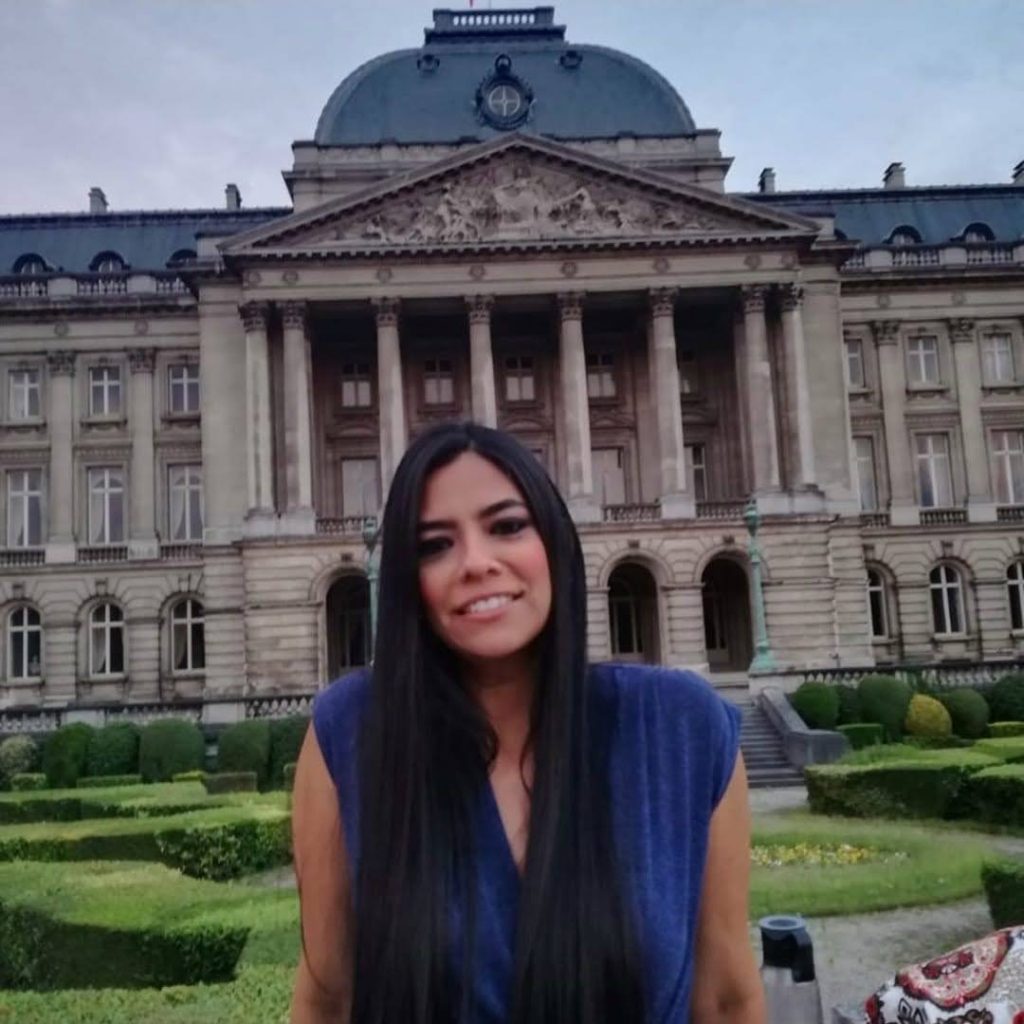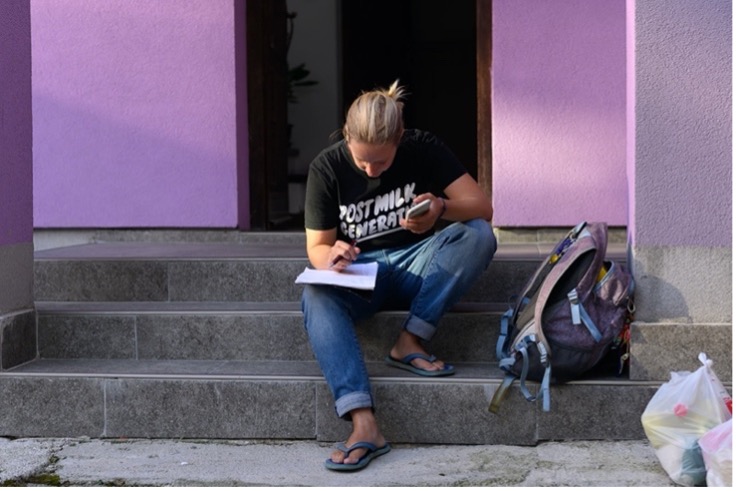Meet Carolina Largo, a Support Worker at the Joint Council for the Welfare of Immigrants, and a migrant woman. Her journey from Caracas, Venezuela to London, England via Colombia and Hungary, has finally led to her dream job in human rights. But it hasn’t been simple.
by Hannah Parry
In “Profiles” we share stories and experiences of migrant and refugee women. If you want to share your story write to migrantwomenpress@gmail.com
It was within the world of closed offices and video calls that Carolina started her role at JCWI. The new position of Support Worker was never intended to be solely work-from-home, but Carolina has known nothing else in this position. “I have to talk with the clients who are often scared, and I have to tell them that I am new there, that I can help them and that they can trust me”, she explains. But doing so over the phone and not in person has been very challenging.
“The office is totally closed, but I have personal meetings with the most vulnerable clients. It’s difficult on Zoom because not everyone has a smartphone. I had one client who had severe mental health issues. It’s not an option for people facing mental health issues to go on their own on the tube or to the office. I went with them to the appointment and I was there to help with everything. For many people, that appointment would be normal, but for that client, it was the most difficult thing” reveals Carolina.
And for Carolina, helping people in this way is a dream come true. She grew up as a migrant in Colombia. Political turmoil and infamous drug trafficking meant her native country wasn’t a safe place to study, so it was in Medellín that she completed high school whilst living with her grandparents. When school was finished, she moved back to Caracas for the first time. “It was difficult, living with my mum. I was in my 20s, making new friends and having new experiences. It was amazing but in some ways challenging” says Carolina.

The career path she has now chosen wasn’t immediately obvious to her. “I started studying philosophy at university, but it wasn’t right. I changed to journalism. It was amazing to be able to change and find out different things for different careers,” she explained. It wasn’t until tensions once again forced Carolina back to Medellín that she settled on becoming a lawyer. “The qualifications I had weren’t recognised in Colombia, so I had to start over. I decided on law and studied for 6 years”, she explained.
After studying hard and specialising in human rights law, Carolina qualified as a lawyer in Colombia. Her early work was within the sphere of commercial law. But this wasn’t what she wanted. “My research dealt with the interaction of human rights with criminal law. It’s not impossible to get a job in human rights, but it’s very difficult. It’s dangerous as well. Basically, all the human rights defenders have to fight with the government and with criminal gangs.”
Alongside being unsatisfied with her career path and wanting to make more of a difference, Carolina met the man who is now her husband. “He was on holiday in Colombia, he’s from Hungary but was living in London. We had a long-distance relationship for 10 months, but we knew we wanted to be together,” she says, explaining that deciding to move away wasn’t easy though. “I knew this decision would be a risk to my career, plus I didn’t know anyone in England and I didn’t speak the language!”
I had some awful career advice. An advisor told me: “Your CV isn’t good, your English isn’t good. Maybe you should start with some work in restaurants to improve your English.”
Visa restrictions meant that they had 6 months in the UK together before Carolina spent 6 months with her new in-laws. “Only his Mum could speak English with me, the others only Hungarian. And it’s not the kind of language you can learn in 6 months!” It was after they got married in Hungary that Carolina could move to the UK.
“I had some awful career advice. An advisor told me: “Your CV isn’t good, your English isn’t good. Maybe you should start with some work in restaurants and start to improve your English.” “My husband is a chef in a restaurant, how is that an option for me if I don’t have experience? The legal system is different here, I can be a lawyer in Colombia but not here. But [here] it’s not dangerous to work in human rights. That’s when I found Hackney Migrants Centre”, she explained.
Through a voluntary position with Hackney Migrants Centre, Carolina improved her own language skills and learnt about the support systems in place for migrants in the UK. But most importantly of all, she gained confidence in herself. “I had to help clients to do things that were new to me. Using the phone in English can be very scary!”

With this valuable experience, Carolina landed a job at JCWI after applying for more than 50 other positions. Prospective employers didn’t understand her right-to-work status so shied away from giving her a chance.
Carolina’s own journey has helped her to be good at her current position. “I came here by choice. Refugees come out of necessity. I can never imagine how it is to be in their position, but I can have empathy with them”.
She has experienced some of the negative aspects of being a migrant woman. “As migrant women, we are more vulnerable. The negative language used in the UK about people from other countries can be very difficult. I’ve experienced racism but that has made me more determined to succeed, and to help others too.”
As migrant women, we are more vulnerable. The negative language used in the UK about people from other countries can be very difficult. I’ve experienced racism but that has made me more determined to succeed, and help others too.
She explains that you don’t have to have any legal knowledge to be able to help vulnerable people. “You cannot imagine how important it is just to sit there and listen”, she explained. JCWI have some great resources for getting involved in small ways, and gaining knowledge. Carolina is extremely praise-worthy of her employer and what they have done for her and other people.
“The clients see that I have helped them and then they ask for even more help. I must be doing something right.”
Learn more about The Joint Council for the Welfare of Migrants at https://www.jcwi.org.uk/

